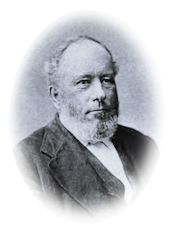Newbern.
March 20. Newbern, situated at the north confluence of the Trent and Neuse rivers, was, I think, first settled by colonists from Berne, in Switzerland, and in honor of the old town was named New Berne, but for short, is now pronounced as written. The chivalry, in their hasty flight, thought to make a Moscow of it, and fired it in several places, destroying the long and expensive railroad bridge across the Trent river, all the turpentine distilleries (save one) of which there was quite a number, and three squares of the town, in one of which was the large Planter’s hotel. The city has a fine water front on the south and east sides, furnishing ample wharfage for shipping and warehouses. It contains a population of about 8000. The streets cross at right angles, thus forming squares which are compactly built over. The area of the city is much less than many northern towns of 2000 inhabitants, but land is scarce here and it doesn’t do to waste it for building purposes. There are, however, several fine residences with ample surroundings. There are four churches, several halls, one academy, one hotel, court house, jail, post office, printing office, and many large wholesale stores and warehouses. There is a small cotton mill, manufacturing cotton yarn, a lumber mill, one turpentine distillery, tannery, gas works, and a large machine shop and foundry connected with the railroad depot, at the north side of the city. There are two banks here, but at present they do not seem to be doing a regular banking business. Capt. Dan, the provost marshal, occupies the Merchant’s, while the master of transportation occupies the bank of North Carolina. Whether the latter bank discounts or not, I am unable to say, but I know that Capt. Dan does, when there is anything in the bottle. The streets are wide and level, set on either side with handsome shade trees. Altogether it is rather a pretty city. This has been a town of some commercial importance, having had a large inland and coastwise trade, exporting shingles, staves and other lumber to the West Indies, cotton and naval stores to northern ports, and bringing return cargoes of such goods as the market here demanded.
